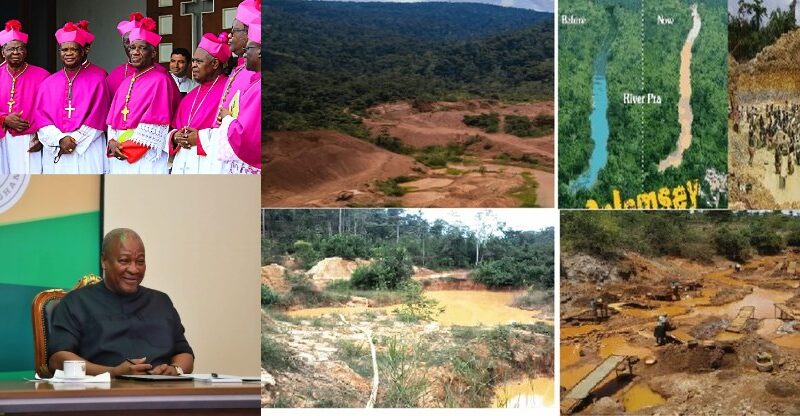Fight Illegal Mining: Ghana Bishops Urge Emergency Action
The Ghana Catholic Bishops’ Conference (GCBC) is demanding immediate and decisive action. They want to fight illegal mining, also known as “galamsey.” In a recent statement, the bishops describe the practice as a national emergency. They urge the government to respond with extraordinary measures. In fact, they say the situation is no longer a routine challenge. They call it one of the gravest afflictions of our time. Moreover, they insist that leaders must act now.
The bishops, in effect, act as moral custodians for the nation. For this reason, they feel they must speak out. The GCBC statement highlights a “profound betrayal” of our sacred trust. It describes how galamsey destroys rivers and forests. In addition, it poisons our soil and endangers public health. It also references Scripture. The text says humanity has a sacred trust to protect the Earth. However, many of Ghana’s once-pristine rivers are now toxic. For example, the Ayensu river’s turbidity levels are dangerously high. Its levels are 32,000 NTU. The Ghana Water Company can only treat up to 2,500 NTU.
The devastation has severe consequences. To begin with, fertile farmlands have become sterile. This is a big problem. Farmers can no longer support their families. This has also reduced our ability to feed the nation. Furthermore, mining poisons seep into our food chain. They cause a variety of serious illnesses. These include cancer and kidney failure. As a result, public health is at great risk. The bishops note how children are lured away from school. They work in dangerous pits. Tragically, many lose their lives in preventable collapses.
The bishops also spoke about corruption. Galamsey has become a “cancer in our national soul.” Indeed, it corrodes politics and governance. Some politicians, chiefs, and security officials have been implicated. They reportedly protect illegal operators. Therefore, the bishops call for their repentance. Moreover, they argue galamsey has become a national security threat.
The statement also directly addresses President John Dramani Mahama. The bishops state that he seems not to “grasp the existential scale of the menace.” In fact, they met with him twice in 2025. They say his responses were unsatisfactory. The president focused only on economic gain. Therefore, the bishops call for a state of emergency. This would allow for extraordinary interventions. They could secure devastated lands and dismantle criminal groups.
In conclusion, the GCBC calls for a holistic strategy. They propose revising mining laws and enforcing stiffer penalties. They also suggest creating special courts. A new, corruption-proof task force is also needed. The bishops also advocate for compassion. They suggest offering alternatives to those in desperation. These could be regulated small-scale mining zones. A nationwide reforestation program would also help. Ultimately, the bishops urge all Ghanaians to choose life over destruction. They ask leaders to prosecute both the poor and the powerful. They believe this struggle concerns the “very soul of Ghana.” We must fight illegal mining now.
- Source: Statement from the Ghana Catholic Bishops’ Conference on illegal mining (Galamsey)




